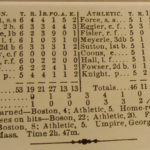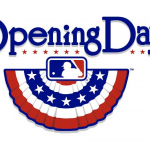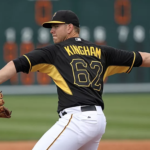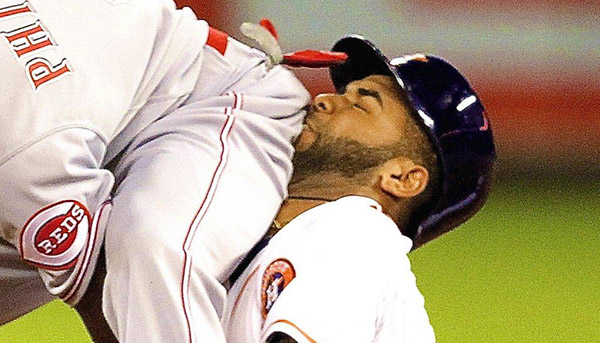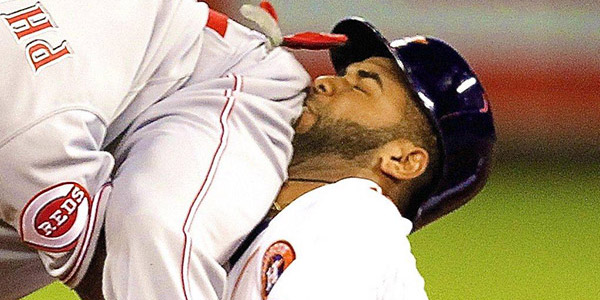New York Mets Endure Legacy of Losing
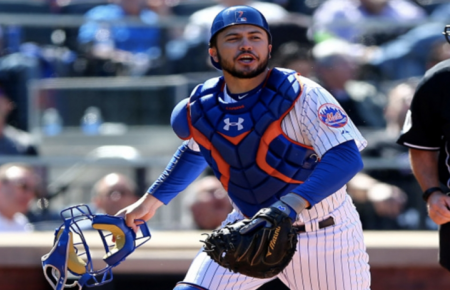 No, I am not trying to say that there is a higher moral order to playing winning baseball, nor am I suggesting that those executives of winning teams graduated magna cum laude from MIT or honed their craft playing Stratomatic baseball.
No, I am not trying to say that there is a higher moral order to playing winning baseball, nor am I suggesting that those executives of winning teams graduated magna cum laude from MIT or honed their craft playing Stratomatic baseball.
I am saying losing is contagious. I am saying there is a legacy of losing. And the New York Mets will continue to lose until major changes are made at the top of their pyramid.
About Winning and Losing
There is a certain something to winning. Sometimes it’s luck, as in 2015 when the New York Mets traded for Yoenis Cespedes at the trade deadline. Fo the final eight weeks of the season, Cespedes seemed to wear the number 3 on his pinstriped uniform as he all but became Babe Ruth, leading the Mets into the World Series they ultimately lost. Of course, they lost. Admittedly, that Series seems like ages ago, today.
Other factors winning teams share are consistency, sagacity and imagination. Executives of winning teams, like the Gene Michaels, the Andrew Friedmans, the Jeff Luhnows and the Theo Epsteins have all demonstrated an ability to find, secure and get the best out of the talent they acquire. Not to mention hiring the right people to manage that talent so they continue to get the most out of their players.
All of the top teams see their strengths and weaknesses, clearly. They don’t fool themselves. They don’t believe their roster is better than it really is. They’re only contenders if they’re contenders.
Of course, there are always exceptions to the rule. Teams that beef up only to fail spectacularly. Unfortunately, the New York Mets fall hard into that category. They are proof that ownership that wears blinders cannot see their team clearly. The Wilpons have either been partial owners (with Doubleday & Company) or the sole owners of the Mets since 1980. Their one constant has been a reluctance to admit the Mets are a major-market team. The Wilpons run the Mets like the Kansas City Royals, not the Boston Red Sox. And it consistently shows with their lackluster second-tier, free agency signings.
It’s fair to say the New York Mets are an example of a dysfunctional baseball organization with a legacy of losing.
The Lesson of Travis d’Arnaud
Travis d’Arnaud is 30 years old, was a first-round draft pick of the Philadelphia Phillies in 2007, was traded to the Mets by Toronto in 2012 and made his major league debut in 2013. He has always been highly thought of, even if he was injury-prone earlier in his career and never quite lived up to his advance billing as a frontline catcher who could hit. Had he consistently lived up to his offensive numbers, the Mets would have been thrilled.
d’Arnaud never quite became a star for the Mets, despite being a reliable everyday player (when he wasn’t injured). In seven years, his OPS+ was 96, four percent below league average. Not terrible for a catcher, but not solid either. And that’s what d’Arnaud was, tantalizing. The Mets and other teams always thought there was more upside. But the question was, how to unlock his potential?
This year, under a new GM, they offered him a one-year $3.5 million contract. Apparently without a plan how to fit him in after (foolishly?) signing Wilson Ramos to share the catching duties with him. Somewhere along the line in April, someone, Brodie Van Wagenen? decided Ramos would be the starter. d’Arnaud descended into the inferno of baseball, the hellish bench of the Mets.
Aften only 10 games and 23 barren at-bats, the Mets decided to release him. Just like that. No sense of recouping the value of an asset. For a team for whom money is always an issue, they publicly swallowed a $3.5 million sh*t sandwich. Gave him away for nothing.
Why Sign d’Arnaud?
… to a one-year deal if the Mets didn’t want him? And if they did want him, why not give him a chance to show what he could do over half a season?
No Mets official has spoken publicly about d’Arnaud’s release. For many Met watchers, it’s yet another example of impetuous decision-making in Flushing. d’Arnaud would not have been the force that pushed the Mets over the top this season, but nor would he have dragged them down, had the Mets played well.
Most (smart) teams would have built up the trade value of d’Arnaud before deciding whether to move him. But then most teams have not perfected a legacy of losing like the Mets.
Shrewd Organizations Knew d’Arnaud had Value
The Dodgers (one of the top five organizations in MLB), signed d’Arnaud almost immediately after the Mets released him in early May. Given that the Dodgers already had two catchers on their roster, d’Arnaud got only one at-bat before the Dodgers flipped his contract to the Tampa Bay Rays (another one of the top five organizations in MLB), for cash, five days after signing him.
That’s two of the better organizations taking a flier on a player who played a key defensive position and still had juice in his battery. And even if he didn’t, with the Mets paying his full $3.5 million contract, any taker was only on the hook for the major league minimum salary. So, why not?
Since he joined Tampa Bay in mid-May, d’Arnaud has appeared in 43 games, had 160 at-bats, and an OPS+ of 118. (Ten home runs and seven doubles.) Good production. The kind of production that would’ve brought the Mets back a reasonable asset, had they kept d’Arnaud long enough to showcase him for a trade.
Not the First Time
The Mets’ briefly flirted with Darren O’Day. They obtained him from the Los Angeles Angels in December 2008. He pitched in four games for them, a total of three innings.
Then, in April 2009, the Texas Rangers claimed O’Day off waivers from the Mets. He went on to a successful relief career with the Texas Rangers and Baltimore Orioles. He is still in baseball, currently on the 60-day IL, with the Atlanta Braves. One more brick in the Mets’ legacy of losing.
Justin Turner, Painful Mistake
In May 2010, the Mets selected Justin Turner off waivers from the Baltimore Orioles. (Further proof the Baltimore Orioles are one of the few MLB teams as inept as the Mets.)
Justin Turner became a Met for four seasons. Each of those seasons, his OPS+ improved, beginning at 29 in 2010 and climbing to 100 (league average) his last year with the Mets.
The Mets released him after the 2014 season (without reason), he became a free agent and signed with the Los Angeles Dodgers.
Of course. The Dodgers must follow the Mets closely, figuring meaty scraps fall off their table every once in a while.
First season with the Dodgers, Turner put up an OPS+ of 155. During the next six seasons, he put up an OPS+ well over 100, leading to a lucrative free-agent contract with the Dodgers. Ouch!
Even Dopes get Lucky Once in a While
R.A. Dickey.
The Mets’ signed him as a free agent after a year with the Minnesota Twins in December 2009. He pitched well for the Mets for three years; so well, he was awarded the Cy Young Award in 2014.
In December 2014, then-GM of the Mets, Sandy Alderson, traded Dickey (and two others) to the Toronto Blue Jays for Travis d’Arnaud, Noah Syndergaard (and two others). A trade that turned out to be a steal for the Mets. It’s still paying off and would’ve paid off even more had the Mets traded d’Arnaud rather than released him.
So? Is there Anything to Learn Here?
Good teams are good, not lucky. They understand the constituent units of winning. How to hire top people for the front office. How to find hidden gems in the minor leagues. How to develop talent. And not build a legacy of losing.
While the Mets continue to give away real talent, the Yankees acquire players like Luke Voit (2019 OPS+ of 162) and Mike Tauchman (2019 OPS+ of 117). Both players cost little in valuable prospects, and both have become integral parts of the Yankees success this season.
Meanwhile, the Mets languish 14 games out of first place in the National League East sporting the 25th worst record of the 30 teams in MLB.
Unlike the top organizations in baseball, the Mets continue to implode. Bad trades. Poor talent decisions. Tragic personnel decisions (meaning the hiring of Van Wagenen and a lost 2019). All of which bleed into their legacy of losing.

